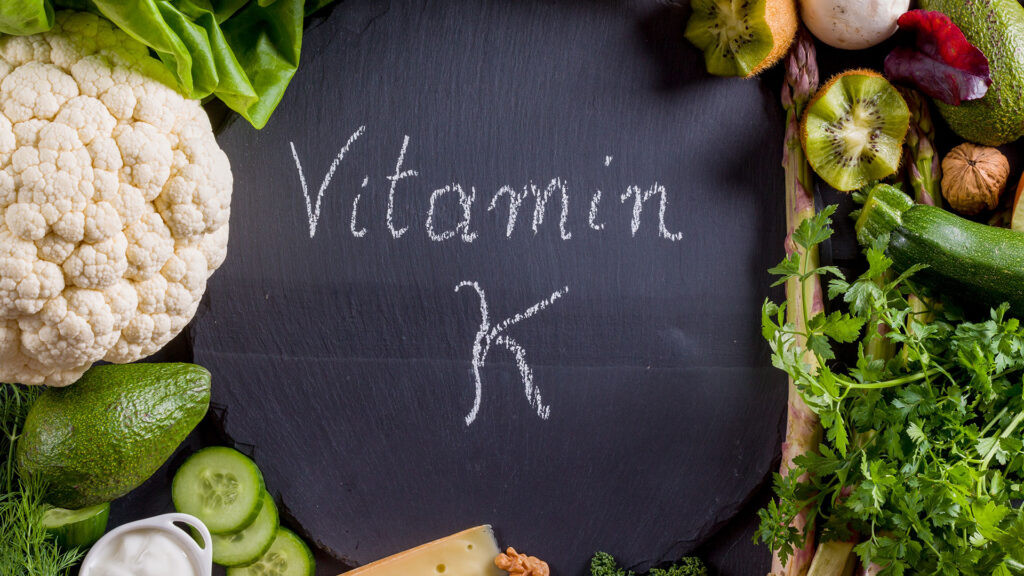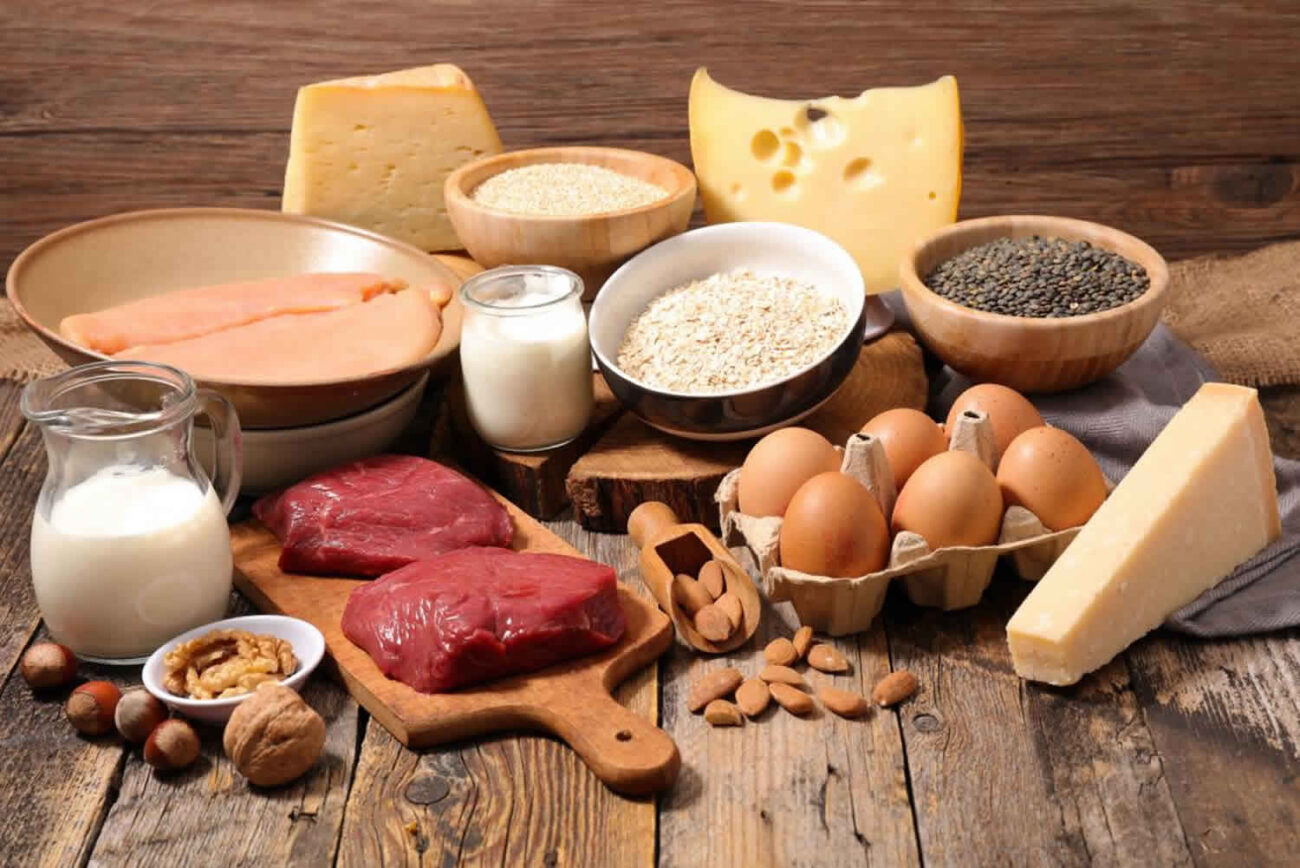When it comes to vitamins, Vitamin K often flies under the radar compared to its more famous counterparts like Vitamin C or Vitamin D. But within the Vitamin K family, there’s a lesser-known superstar: Vitamin K2. This nutrient plays a critical role in bone health, heart health, and more, yet many people are unaware of its importance.
In this blog post, we’ll explore what Vitamin K2 is, how it differs from Vitamin K1, and the incredible benefits it offers for your body.
What is Vitamin K2?
Vitamin K is a fat-soluble vitamin that comes in two main forms:
- Vitamin K1 (phylloquinone): Found primarily in leafy green vegetables, it’s essential for blood clotting.
- Vitamin K2 (menaquinone): Found in animal products and fermented foods, it’s crucial for bone and heart health.
Vitamin K2 is further divided into subtypes, with MK-4 and MK-7 being the most studied and biologically active forms. While Vitamin K1 is mostly involved in blood clotting, Vitamin K2 has a broader range of functions, particularly in directing calcium to the right places in the body.
How Does Vitamin K2 Work?
Vitamin K2 activates proteins that regulate calcium metabolism. Two of the most important proteins it activates are:
- Osteocalcin: Helps bind calcium to bones, improving bone strength and density.
- Matrix Gla Protein (MGP): Prevents calcium from depositing in soft tissues like arteries, protecting against calcification.
Without adequate Vitamin K2, calcium can end up in the wrong places, leading to weakened bones and hardened arteries.
Top Benefits of Vitamin K2
1. Supports Bone Health
- Vitamin K2 activates osteocalcin, a protein that binds calcium to the bone matrix. This helps maintain bone density and reduces the risk of fractures and osteoporosis.
- Studies have shown that Vitamin K2 supplementation can improve bone health, especially in postmenopausal women.
2. Protects Heart Health
- Vitamin K2 activates matrix Gla protein (MGP), which prevents calcium from accumulating in arteries and blood vessels. This reduces the risk of arterial calcification, a major contributor to heart disease.
- Research suggests that higher Vitamin K2 intake is associated with a lower risk of coronary heart disease.
3. Promotes Dental Health
- Vitamin K2 works synergistically with Vitamin D to support dental health. It helps direct calcium to the teeth, strengthening enamel and reducing the risk of cavities.
4. Enhances Skin Health
- By preventing calcium buildup in elastin (a protein that keeps skin elastic), Vitamin K2 may help reduce wrinkles and improve skin elasticity.
5. Supports Brain Health
- Emerging research suggests that Vitamin K2 may play a role in protecting against neurodegenerative diseases like Alzheimer’s by preventing calcium deposits in brain tissues.
6. May Improve Insulin Sensitivity
- Some studies indicate that Vitamin K2 can improve insulin sensitivity, potentially reducing the risk of type 2 diabetes.
7. Works Synergistically with Vitamin D
- Vitamin K2 and Vitamin D work together to ensure calcium is properly utilized in the body. While Vitamin D helps absorb calcium, Vitamin K2 directs it to the right places (bones and teeth) and away from harmful areas (arteries and soft tissues).
Food Sources of Vitamin K2
Vitamin K2 is found in a variety of animal-based and fermented foods. Here are some of the best sources:
- Fermented foods: Natto (a Japanese fermented soybean dish) is the richest source of Vitamin K2 (MK-7).
- Animal products: Grass-fed butter, egg yolks, liver, and cheese (especially Gouda and Brie).
- Meat: Chicken, beef, and pork.
- Fish: Fatty fish like salmon and sardines.
Recommended Daily Intake
There is no official Recommended Dietary Allowance (RDA) for Vitamin K2, but experts suggest the following daily intake:
- Adults: 90-120 micrograms per day (for both men and women).
- Children: Varies by age, but generally 30-75 micrograms per day.
Most people don’t get enough Vitamin K2 from their diet alone, so supplementation may be beneficial, especially for those at risk of bone or heart issues.
Who May Benefit from Vitamin K2 Supplementation?
- Older adults: To support bone health and prevent osteoporosis.
- People with heart disease risk factors: To reduce arterial calcification.
- Those on a plant-based diet: Since Vitamin K2 is primarily found in animal products.
- Individuals taking Vitamin D supplements: To ensure calcium is properly utilized.
Potential Risks and Side Effects
Vitamin K2 is generally safe, but there are a few considerations:
- Blood Thinners: Vitamin K2 can interfere with blood-thinning medications like warfarin. Consult your doctor before supplementing.
- Allergies: Some people may be allergic to ingredients in Vitamin K2 supplements.
- Overconsumption: While rare, excessive intake of Vitamin K2 can lead to toxicity. Stick to recommended doses.

Vitamin K2 is a vital nutrient that plays a key role in bone health, heart health, and overall well-being. By ensuring calcium is directed to the right places in the body, it helps prevent osteoporosis, arterial calcification, and other health issues. While it’s found in certain foods, many people may benefit from supplementation to meet their daily needs. If you’re considering adding Vitamin K2 to your routine, consult a healthcare professional to determine the right dosage for you.
Have you tried Vitamin K2 supplements or incorporated more K2-rich foods into your diet?
Share your experiences in the comments below! 💪

